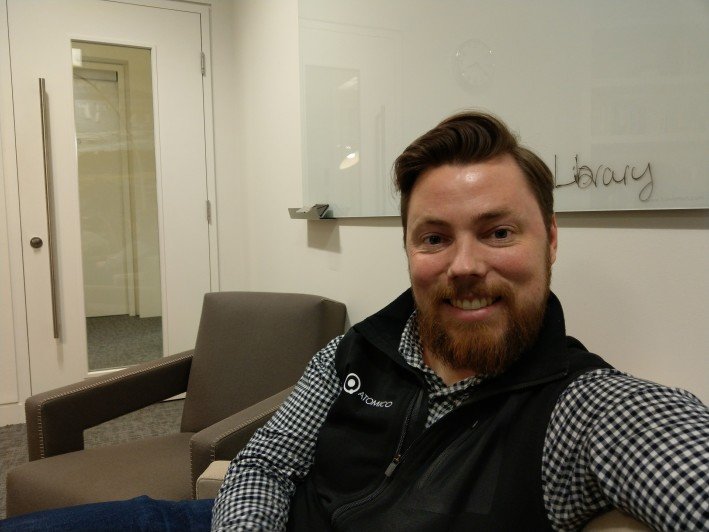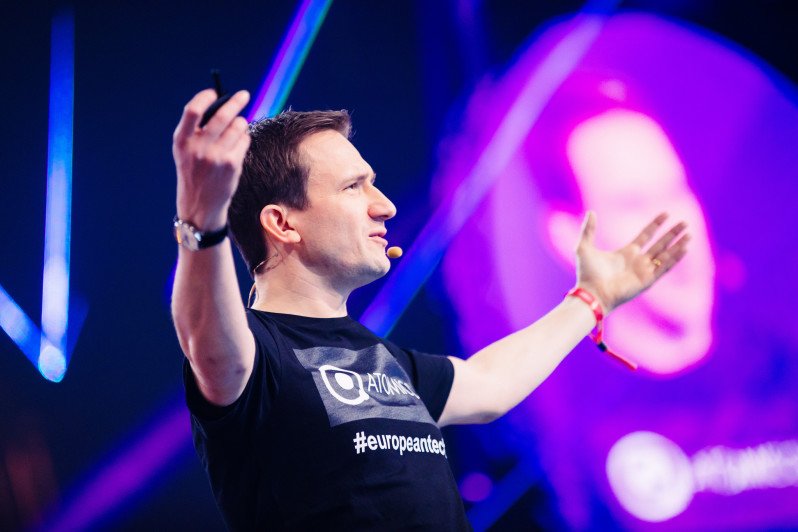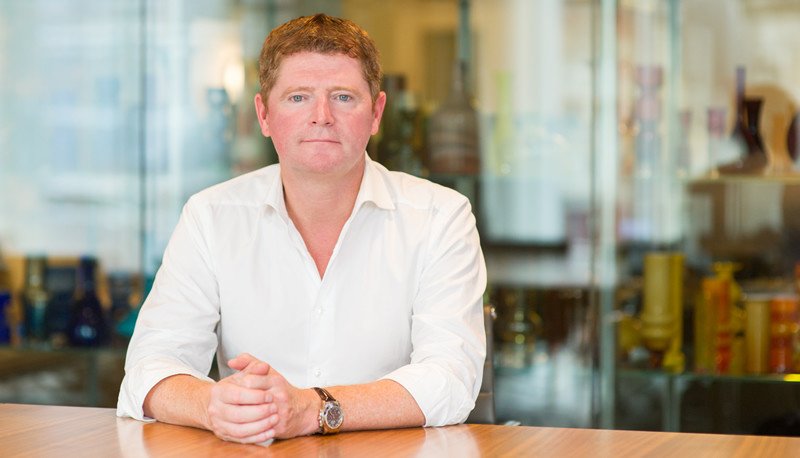It's a long way from the hipster-ish cafes and burger joints of London's Shoreditch to the posh high-street shops of New Bond Street. It's there, tucked discreetly between the elegant store windows of "British luxury brand" Mulberry and F Pinet ("not a standard cobbler", according to their website), you will find Atomico.
Atomico is a venture fund quite unlike any other. The most obvious difference is that co-founder Niklas Zennström is a true European – actually, global – tech celebrity, having started Skype many years ago with his partner Janus Friis.
As useful as that star power may be, however, it cannot fuel Atomico's business on its own. The firm's team is large and diverse, reflecting directly the specific approach, strategy and value proposition which the firm brings to the table when investing in portfolio companies and, most importantly, when supporting those companies in their growth after the investment.

I recently had an opportunity to speak with several key people – partners and EIRs ("Entrepreneurs in Residence") from the Atomico Growth Acceleration team.
Considering the fact that their annual 'State of European Tech' report was published in late November and launched on stage at the Slush conference, it seemed like the right time to shed some light on what they've been up to. Check out the video below:
Full disclosure – the credit for arranging these conversations goes to my old friend Bryce Keane. Once a tried-and-true Shoreditch fellow, taking up residence in the iconic Tea Building where he was running Albion Drive, Bryce himself has made the transition from Shoreditch to this most central of London locations to lead Atomico's communications with its many and diverse audiences.

Quick recap: Zennström and co-founder Mattias Ljungman founded Atomico back in 2006. The firm has raised four funds thus far, with the latest, Atomico IV, closing in February of 2017 with a remarkable $765 million to be invested in high-growth companies. Adding up the previous funds, announced in 2006, 2010 and 2013 respectively, the team has raised more than $1.4 billion. That's quite a bit of firepower to fuel Europe's – and the world's – most innovative companies.
I was curious to hear how Atomico first got started – and from none other than Ljungman himself.

"Niklas and I have known each other for quite some time. We go way back – all the way back to the old Kazaa days. When he sold Skype..."
"Which sale was this?" – I couldn't resist asking – "The first time (to eBay) or the second (to Microsoft)?"
"This was in 2005, so after the eBay sale. We had a series of conversations about setting up a different kind of fund – one based on the concept of entrepreneurs backing entrepreneurs. This is more common today, but at the time it wasn't being done in European VC, only in the States."
"We wanted to create a firm that would be unique in several ways," Ljungman continued. "Firstly, we wanted to build something lasting, something that would withstand the test of time. We also saw that we potentially had some capabilities that couldn't be found not only in Europe, but also not in other parts of the world. Based largely on our colleagues from Skype (more on that later in the article), we saw that we could create a very global footprint, with an active presence in places such as China, Japan and Latin America. Other firms also had some global offices but they were largely franchises and not so much focused on an integrated, global operation."
"Another important issue was our focus on growth. Once we invested in a portfolio company, we wanted to figure out ways in which we could meaningfully contribute to their businesses, primarily in terms of how can we help them to grow even faster."
"Many investors and firms – especially in the past, but it's still very true today – set expectations, they tell the entrepreneurs they've invested in what they want or need to see to hit certain financial or performance goals."
"We also have expectations," Ljungman said, "but we sit down with our entrepreneurs and talk about what we need to do together, how do we get from here to where we want to be? With clearly stated goals and the very strong support we provide, the founders and teams become... well... invigorated. We basically see ourselves as service providers to allow them to achieve their biggest dreams."
IVO: "Let's talk for a moment about the fragmentation of Europe. Do you think it's an issue, is it a problem, is it something that entrepreneurs should do something about?"
Ljungman: "It's an obsession. Europeans love to talk about it! Yes, it's very true and it's an important issue but there are also strengths. European founders tend to think more globally. They understand that people behave in different ways because of culture, religion and language. So – doing business in China, Japan, South America becomes easier. As the world is becoming a single economy, that is really powerful."
"Why does Europe produce significantly more engineers and STEM students than the US?"
(Note – data from Atomico's „State of European Tech“ report states that Europe has 5.5 million STEM engineers vs. 4.5 million in the US).
"The reason is that every country in Europe wants to build its own, best-in-class engineering schools. So if you think about the fragmentation of Europe as a problem – it turns out that if we can work together, this can be a real strength. European companies have lots of different places to find talent – Stockholm, London, Paris, Zurich, so many places."

"These great schools in Europe are not 'elitist'. They are significant pools of great talent. For quite some time now, this talent has been 'latent' in a sense because people have been going to traditional industries. Now more and more of them are saying "I want to get into proper tech". Now, as Europe is moving more and more into deep tech, we're going to have more to draw on. I'm not saying it's all perfect, but sometimes I think we don't really recognize what it is that we have and how to work together to make it even better."
On the issue of public policy in Europe, Bryce was kind enough to bring Tom Wehmeier into the conversation (albeit via email). Tom is also an Atomico partner, the firm’s Head of Research and the key person behind the firm's 'State of European Tech' report, which he presented in Helsinki on stage at the Slush conference this past November.

I had two questions for Tom on this topic.
IVO: "What should European policy makers do - or not do - to support the growth and success of European high tech? In particular - should they do anything different than what they are already doing?"
Wehmeier: "I think the biggest shift is to move into 'offence' mode' and to start viewing regulation as an opportunity to derive competitive advantage at the country and regional level."
"If you look at all of the key new technologies that will transform our economy over the next 5-10 years (autonomous vehicles, crypto/blockchain, AI (applied in health and other verticals), intelligent robots, drones, VTOL aircraft, genomics, etc), they all require updates to our existing regulatory frameworks in order to enable full commercial deployment."
"We should look at how we can use regulation as a means to capture the opportunity - in terms of increased investment into these technologies and an accelerated commercialisation timeline - that these technologies present, not just in terms of investment, employment, but also in terms of the role they'll play in tackling major global societal challenges, whether that's climate change, healthcare access and outcomes, sustainable food production, congestion or other."
IVO: "Should European high tech entrepreneurs and investors demand action from policymakers? Is there a need for (more) coordinated pressure/communication from industry to the "political class", both on the national as well as the European level?"
Wehmeier: "What we need is closer collaboration from both sides. Both groups have fundamentally different starting points, resulting in asymmetry in terms of knowledge around different opportunities and their associated challenges. The more we can close any knowledge or understanding gap through greater awareness of each other's issues and the incentives needed to help meet each other's objectives, the more likely we'll be to achieve great outcomes for all."
When your official title at Atomico says „Partner and Head of Talent“ – that could mean any number of things. In the case of Dan Hynes it actually means Dan's calling is to help Atomico's portfolio companies grow and scale their teams.

Dan brings some interesting credentials to that assignment. He was one of the first Googlers to land in Europe, building the company's European team from 60 to 8,500 people across the continent. Dan's next act was no less impressive, working with Zennström and Friis at Skype to go from 600 to 3,000 in three years. As we shall see in the rest of this profile, bringing key people from Skype to Atomico was a straightforward strategy for the venture firm.
We talked about the special place Tallinn, the capital of Estonia, has in the Skype organization.
"Tallinn was always special for Skype – it was always the spiritual home, and that was largely due to Sten Tamkivi, who was the head of our development team there. In a way, we thought of Sten as our 'conscience'. It's not that we sought his 'permission' per se, but we wanted to make sure that any major things we did made sense to Sten and people like him."

Fast forward to his role at Atomico – Dan's work with any particular Atomico investee varies greatly and depends on what that company needs at that particular time in terms of team and talent.
"It might mean working with the founders to identify what we call 'the 3 Ps' – people, products and programs – which will enable the company to scale its team and take it to the next level. So ... who are the best people (P) out there to help you build the best team? That's really important. How can you programatically (P) design your company to scale? That involves culture building, organizational design, leadership structure... and also managerial effectiveness, which is really important and different from leadership skills, so we decouple those two."
"And finally – what is the technology; what are the products (P) out there that will help you manage your organization through data, rather than gut."
"One of the key issues we work on," Hynes continued, "is combining the founding team with those who are more experienced. That's a delicate process where you can't just bring somebody in and impose them on the current group – you have to be careful and get the mix right."
We went on to reflect on what's going on in Europe and how European startups are facing up to the massive shortage of talent.
"Europe is very mobile," he commented, "and all over Europe there are these deep pockets of talent. London has 300,000 engineers, the next city is Paris with 180,000 and then Berlin with 93,000. We actively consider, with our founders, setting up development offices in second cities. A few things need to be in place for that. There has to be a direct flight – which people often don't consider initially. There has to be a deep enough pipeline to sustain building out that remote office."
On the topic of talent, I was curious to hear Dan's opinion about European policy. Did he feel current regulations in Europe were an obstacle to mobility and to the growth of European high-tech companies? Paperwork, admin, regulations on cross-border hiring – how much of an issue was that?
"I don't really see that as a critical issue," Hynes posited. "Talented engineers can come to London with a backpack and get started very quickly. Senior executives are a different subject – we need to invest significant resources into helping them make the move with their whole families. Look for the right place to stay, the right schools, making sure it works and makes sense for everyone. In terms of EU regulations and policy, however, I really don't have an issue with any of that."
(This is the first in a series of two articles exploring what makes Atomico tick)
Also read:
A chat with Niklas Zennström about the Skype days, scaling and the future of Atomico (video)
Atomico beefs up its ‘value creation team’ with growth expert and Silicon Valley vet Ben Grol
Atomico closes its fourth fund at $765 million
Firstminute closes $85 million fund backed by Tencent and Atomico
Photo credits:
- New Bond Street, London - Google Street View - Atomico interior, partner photos, Tallinn rooftops - Ivo Spigel - Tom Wehmeier at Slush - Jussi Hellsten on Flickr / Slush - Helsinki University - Jin Nakazawa on Flickr



Would you like to write the first comment?
Login to post comments